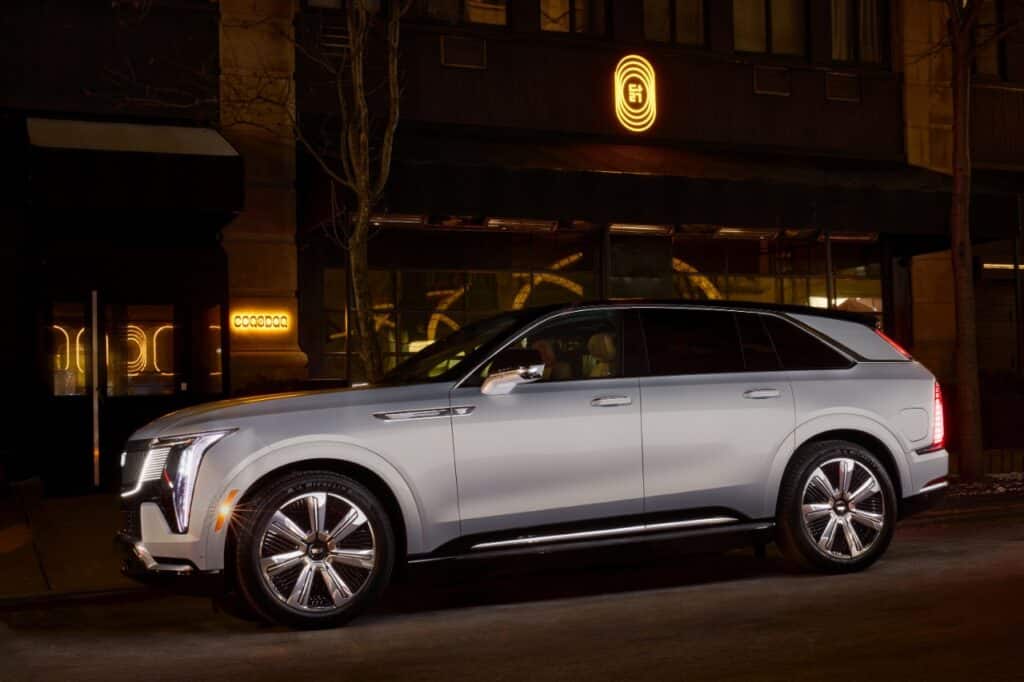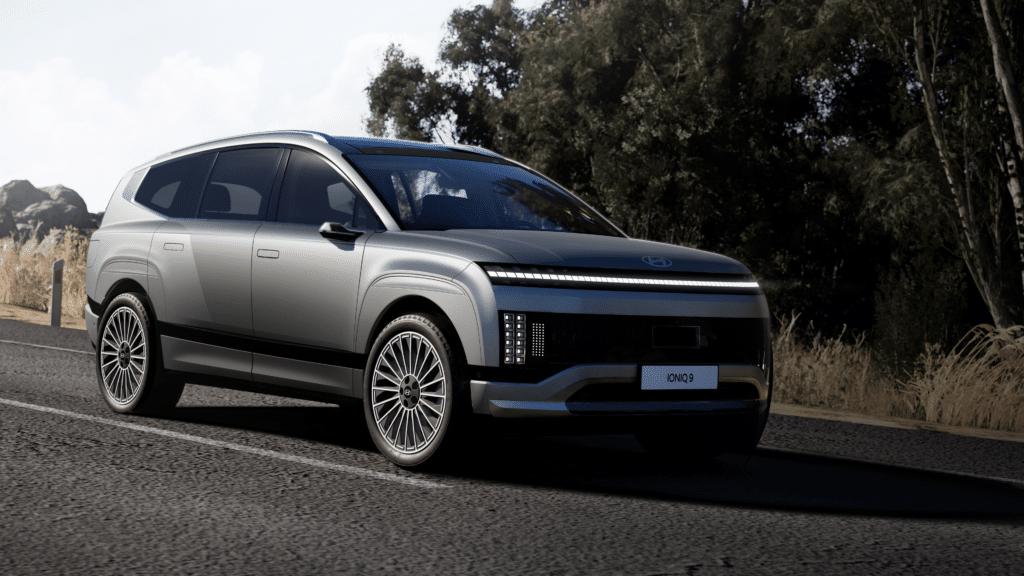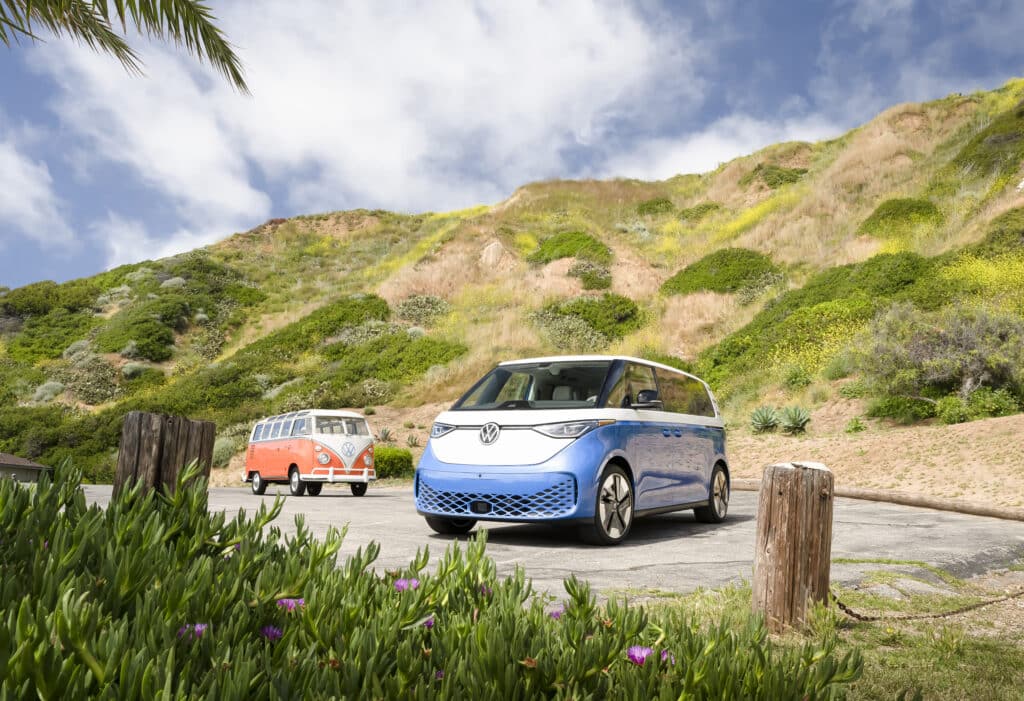Autotrader Names Best New Cars of 2025 as Pre-Tariff Demand Spikes
The automotive industry is constantly evolving, with new models and technology making it difficult for consumers to choose the right vehicle. From electric to hybrid cars, and from compact sedans to spacious SUVs, the market has something for everyone. However, with more than 300 new models available, narrowing down the options can be overwhelming. This is where Autotrader steps in, helping car shoppers make informed decisions by evaluating and ranking the best cars on the market.
On March 26, 2025, Autotrader’s experts unveiled their highly anticipated list of the Best New Cars for 2025, selecting just 10 vehicles. These vehicles stand out for their groundbreaking features, exceptional value, and ability to meet the evolving needs of today’s consumers. The list includes models that cater to a variety of preferences, from the luxury of the electric Cadillac Escalade IQ to the retro design of the VW ID. Buzz electric van.
As car prices are expected to rise significantly due to new tariffs, these vehicles have been carefully chosen with affordability in mind. The base model of each car listed starts below $110,000, with most of them priced even lower. Autotrader’s experts focused on cars that are either newly redesigned or introduced for 2025, ensuring that the list represents the most current options for buyers looking to make a smart investment.

The List Includes Four Electric Vehicles, Two Hybrid Gasoline-Electric Vehicles, and Four Gas-Powered Models
“The team scrutinized all new cars available for sale as 2025 and early release 2026 models to name the 10 best for your consideration,” said Jason Fogelson, managing editor for Autotrader. “This year’s list includes four electric vehicles, two hybrid gasoline-electric vehicles, and four gas-powered models, including SUVs, sedans and one minivan that exceeded our expectations in factors like interior comfort, build quality, technology, driving experience and more.”
Among the top contenders are the 2025 Cadillac Escalade IQ, a groundbreaking electric vehicle with impressive luxury features, and the 2025 Honda Civic Hybrid, which combines the reliability of the Civic with the fuel efficiency of hybrid technology. Other notable vehicles include the 2025 Volkswagen ID. Buzz, an innovative electric van that blends nostalgia with futuristic design.
In addition to these models, Autotrader’s list includes the popular 2025 Volvo EX30 EV and the 2026 Hyundai Ioniq 9, a sleek electric SUV with cutting-edge technology, to round out the top 10.
Autotrader’s Best New Cars for 2025 (in alphabetical order)
2025 Cadillac Escalade IQ (EV)
2025 Ford Expedition
2025 Honda Civic (Hybrid)
2026 Hyundai Ioniq 9 (EV)
2025 Kia K4
2025 Nissan Kicks
2025 Toyota 4Runner
2025 Toyota Camry
2025 Volkswagen ID. Buzz (EV)
2025 Volvo EX30 (EV)

Autotrader’s annual roundup is a valuable resource for anyone navigating the often overwhelming car-buying process. With expert insights and an emphasis on value and innovation, these 10 vehicles are the standout choices for 2025. Whether you’re looking for an eco-conscious hybrid, or a tech-forward electric vehicle, Autotrader’s experts have curated the best options for buyers.
For more information on these vehicles and to explore Autotrader’s full list of recommendations, visit their website. Autotrader remains the most trusted resource for car shoppers, helping buyers find the perfect vehicle with ease and confidence.
Should You Buy a New Car Before Auto Tariffs Take Effect on April 3, 2025?
As the clock ticks down to April 3, 2025, when new 25% auto tariffs are set to take effect, car buyers face a tough decision: Should they rush to dealerships now, in anticipation of price increases, or take their time and risk paying thousands of dollars more in the near future?
Experts who spoke with ABC News are advising consumers to strongly consider accelerating their purchase plans, though they also stress the importance of not rushing into a deal without conducting due diligence. The looming tariffs, which will apply to a wide range of imported vehicles including cars, SUVs, minivans, cargo vans, and light trucks, will drive up car prices significantly. While it’s unclear whether price hikes will happen immediately or over the coming months, many experts agree that the uncertainty surrounding these changes is a key reason why buyers should consider moving quickly.
“You’ll see a lot of people going to dealership lots sooner rather than later because they have no idea when or how much the tariffs will hit them in the wallet,” Joseph McCabe, president and CEO of advisory firm AutoForecast Solutions, told ABC News.
The tariffs of 25% on imported vehicles are expected to have a significant impact on the price of foreign-made cars. Analysts predict that importers will pass on a portion of the added costs to consumers, resulting in price increases that could range between $5,000 and $10,000 per vehicle. However, some experts warn that the added costs could reach as much as $20,000 per vehicle, depending on the type of car and where it’s produced.
Domestic vehicles won’t escape the impact of these tariffs either. Cars produced in the U.S. are expected to see price increases as well, primarily because manufacturers will face higher costs for imported parts. Additionally, as buyers look to domestic alternatives to avoid the tariff burden on foreign-made cars, demand for U.S.-produced vehicles will likely rise, further pushing up prices.
“It’s a really complex situation but the bottom line for consumers is that the price of cars will be going up,” Kimberly Palmer, a personal finance expert at NerdWallet, told ABC News.
“If you know you need to buy a car – it’s something you’ve already decided and worked into your budget – then it could make sense to speed up your timeline,” Palmer added.
Aaron Bragman, Detroit bureau chief at Cars.com, put it more succinctly: “Try to get a vehicle now if you can.”
Given the looming price hikes, Dan Ives, Managing Director of Equity Research at Wedbush, urges car buyers to act sooner rather than later. He predicts that price increases for U.S. buyers will be felt across the market, regardless of whether they’re purchasing an imported or domestic model.
Buyers are advised to move quickly, but also to take the time to compare different models and options to ensure they’re getting the best possible deal. Ives emphasizes the importance of researching loan options and borrower-friendly financing to ensure that customers don’t find themselves paying more in interest due to hasty decisions. Ives predicted general tariff-related price increases for U.S. buyers between $5,000 and $10,000 per vehicle.
The actual timeline of the price increases remains uncertain, and it could vary depending on factors like the origin of the vehicle or its parts, as well as manufacturers’ strategies for handling the tariff impact. For now, it’s clear that car buyers may want to act sooner rather than later, especially if they’re in the market for foreign-made cars or parts that could face higher costs in the months ahead.
As April 3rd draws closer, it’s clear that the car buying landscape is about to shift dramatically. Whether you’re eyeing a domestic or imported vehicle, now might be the time to act before prices rise beyond your reach.
The added costs could reach as high as $20,000 per vehicle, Art Wheaton, director of labor studies at Cornell’s School of Industrial and Labor Relations, who studies the auto industry, told ABC News in a statement.

The Federal EV Tax Credit Under Threat
For now, the federal EV tax credit is still available, although it is not clear for how much longer. The administration has threatened to cut the credit, which offers new EV buyers up to $7,500. EVinfo.net recommends buying an EV soon, if you are in the market to buy a car, to take advantage of this credit, which is offered at point-of-sale.
The federal EV tax credit and EV subsidies are important because they are crucial to helping American automakers catch up to China and compete with China, by producing EVs, hybrids and gas cars made in America. This is important to remember even for EV critics, as the EV credits and subsidies also help companies produce the gas cars that these critics prefer. Removing the credit and subsidies would be a disaster for America’s economy, losing American jobs in significant numbers.
About Autotrader and Cox Automotive
Autotrader is a leading platform for car listings, connecting buyers with the vehicles they desire. As part of Cox Automotive, Autotrader leverages the latest in technology and consumer insights to provide a seamless shopping experience. The brand is known for its comprehensive marketing solutions, helping car shoppers find new, used, and Certified Pre-Owned vehicles. With a vast audience and expert guidance, Autotrader continues to be an essential resource in the automotive marketplace.
Cox Automotive is the world’s largest automotive services and technology provider, with a portfolio of industry-leading brands including Autotrader®, Kelley Blue Book®, and Manheim®. The company utilizes data-driven solutions to support car shoppers, manufacturers, dealers, and more, providing innovative tools to navigate the evolving automotive landscape. Cox Automotive is a subsidiary of Cox Enterprises, a privately owned company based in Atlanta, Georgia.
EVinfo.net’s EV Recommendations
Any of the four EVs listed would be great choices. We are especially impressed by Cadillac, a great American comeback story. Cadillac’s high quality EVs were the most important part of a major recent rebirth for Cadillac.
Cadillac, founded in 1902, is among the first automotive brands in the world. When General Motors purchased the company in 1909, Cadillac had already established itself as one of America’s premier luxury car makers. Cadillac experienced a significant decline in the luxury car market, particularly from the 1970s onwards due to factors like the oil crisis, changing consumer tastes, and competition from foreign luxury brands.
EVinfo.net recommends fast, fun, reliable and high-quality EVs by Ford, Hyundai/Kia, Rivian, BMW, Mercedes-Benz, GM, Porsche, Volkswagen, Lucid Motors, Audi, Mini Cooper, Polestar, Volvo, Jeep, and Honda.

Electric Vehicle Marketing Consultant, Writer and Editor. Publisher EVinfo.net.
Services